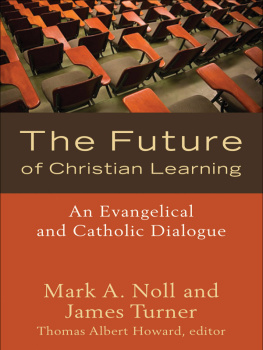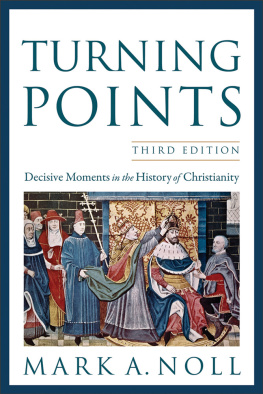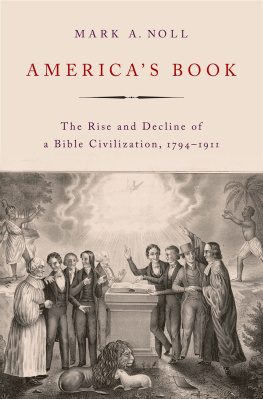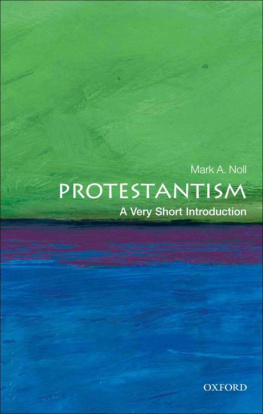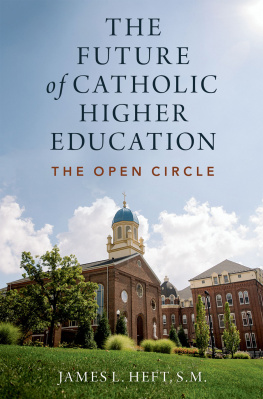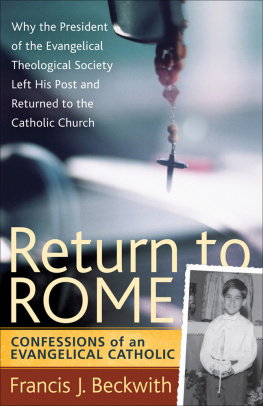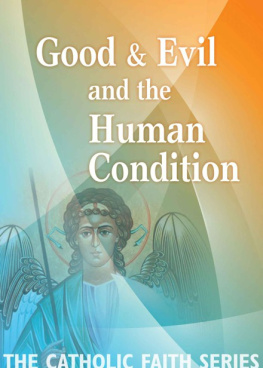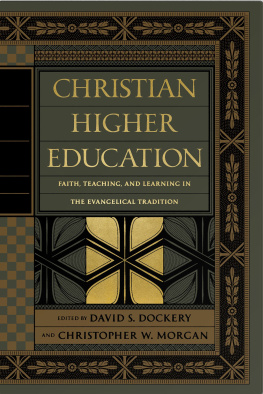Mark A. Noll - The Future of Christian Learning: An Evangelical and Catholic Dialogue
Here you can read online Mark A. Noll - The Future of Christian Learning: An Evangelical and Catholic Dialogue full text of the book (entire story) in english for free. Download pdf and epub, get meaning, cover and reviews about this ebook. year: 2008, publisher: Baker Publishing Group, genre: Religion. Description of the work, (preface) as well as reviews are available. Best literature library LitArk.com created for fans of good reading and offers a wide selection of genres:
Romance novel
Science fiction
Adventure
Detective
Science
History
Home and family
Prose
Art
Politics
Computer
Non-fiction
Religion
Business
Children
Humor
Choose a favorite category and find really read worthwhile books. Enjoy immersion in the world of imagination, feel the emotions of the characters or learn something new for yourself, make an fascinating discovery.
- Book:The Future of Christian Learning: An Evangelical and Catholic Dialogue
- Author:
- Publisher:Baker Publishing Group
- Genre:
- Year:2008
- Rating:5 / 5
- Favourites:Add to favourites
- Your mark:
- 100
- 1
- 2
- 3
- 4
- 5
The Future of Christian Learning: An Evangelical and Catholic Dialogue: summary, description and annotation
We offer to read an annotation, description, summary or preface (depends on what the author of the book "The Future of Christian Learning: An Evangelical and Catholic Dialogue" wrote himself). If you haven't found the necessary information about the book — write in the comments, we will try to find it.
The Future of Christian Learning: An Evangelical and Catholic Dialogue — read online for free the complete book (whole text) full work
Below is the text of the book, divided by pages. System saving the place of the last page read, allows you to conveniently read the book "The Future of Christian Learning: An Evangelical and Catholic Dialogue" online for free, without having to search again every time where you left off. Put a bookmark, and you can go to the page where you finished reading at any time.
Font size:
Interval:
Bookmark:
The Future
of Christian Learning
The Future of Christian Learning
An Evangelical
and Catholic Dialogue
Mark A. Noll and
James Turner
Thomas Albert Howard, editor
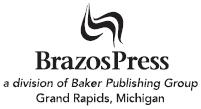
2008 by Thomas Albert Howard
Published by Brazos Press
a division of Baker Publishing Group
P.O. Box 6287, Grand Rapids, MI 49516-6287
www.brazospress.com
Printed in the United States of America
All rights reserved. No part of this publication may be reproduced, stored in a retrieval system, or transmitted in any form or by any meansfor example, electronic, photocopy, recordingwithout the prior written permission of the publisher. The only exception is brief quotations in printed reviews.
Library of Congress Cataloging-in-Publication Data
Noll, Mark A., 1946
The future of Christian learning : an Evangelical and Catholic dialogue / Mark A. Noll and James Turner ; Thomas Albert Howard, editor.
p. cm.
ISBN 978-1-58743-213-2 (pbk.)
1. Learning and scholarshipReligious aspectsChristianity. 2. Evangelicalism RelationsCatholic Church. 3. Catholic ChurchRelationsEvangelicalism. I. Turner, James, 1946 II. Howard, Thomas A. (Thomas Albert), 1967 III. Title.
BR115.L32N65 2008
280'.042dc22
2007046986
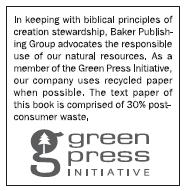
Contents
Thomas Albert Howard
Mark A. Noll
James Turner
James Turner
Mark A. Noll
I
Introduction
By Thomas Albert Howard
T he present volume grew out of a dialogue held on the campus of Gordon College in Wenham, Massachusetts, on September 25, 2006. That such a dialogue on such a topic between a leading American evangelical scholar and a leading American Catholic scholar would take place at an evangelical college in the heart of New England reflects changes that have been and remain afoot.
Permit a brief reflection on place and history.
Despite the association today of Boston with things Irish and Catholic, New England, it should be remembered, was an inhospitable place for Roman Catholicism to put down roots. Even as it did, the region witnessed more than its share of Catholic-Protestant tensions. Like much else in American history, it perhaps all started in 1620 with the Mayflower, when William Brewster lugged across the Atlantic an English translation of the Venetian historian Paulo Sarpis venomous attack on the Council of Trent and the institution of the papacy.
Subsequent generations of Puritans, both in the Old World and in the New, raised denunciations of Popery into an art form. A glance at Harvards book index from the seventeenth and eighteenth century reveals titles such as The Papists detected, and the Jesuits subtill practises to ruin and subvert the nation, discovered and laid open (1678); Popery: the grand apostasie (1680); and Papists no Catholicks, and popery no Christianity (1685). For New England children, Break the Popes Neck was a popular fireside game, while the New England Primer (where the young learned their ABCs and rudimentary moral lessons) reminded its impressionable readers to Abhor that arrant whore of Rome, / and all her blasphemies.
When significant numbers of Catholic immigrants actually arrived in New England in the nineteenth century, things got more complicated and volatile; anti-Catholic invective adjusted its rhetoric accordingly. For at this time in the new nations history, not only did Catholics represent an abiding affront to true Christianity but their hierarchical organization and ties to Rome made them an enemy from within, a threat to republican values such as liberty, democracy, and independent thought. Apostate Christians, Catholics were also sorry Americans. For a period in the 1850s the virulently anti-Catholic Know-Nothing Party actually controlled the Massachusetts state legislature, which held its sessions in a city where a Protestant mob had torched an Ursuline monastery in 1834. Boston was also the site of the so-called Eliot School Rebellion, a tense stand-off between Catholics and public school officials over the compulsory daily reading of the (Protestant King James) Bible.
When Europes unwashed masses arrived in even greater numbers in the late nineteenth century, Protestants felt their longstanding proprietary stake in the region truly under siege. The Baptist minister Adoniram Judson Gordon (183695), the founder of what is now Gordon College and a man of considerable piety and virtue, was not untouched by powerful anti-immigrant currents of nativism and anti-Catholicism. Labeling the papacy a monster of blasphemy, Gordon also worried that the evil hand of the Jesuits would be felt upon the throat of our Republic if something were not done to stem Catholic immigration.
But if American Protestants of various stripes worried about superstitious masses and scheming priests infiltrating the country, Catholics on both sides of the Atlantic had long expressed puzzlement and contempt at the revivalist, populist forms of Protestantism that appeared to thrive in the context of American freedoms, frontier expansion, and the new lands capitalist ethos. For the English Catholic Hilaire Belloc, the American political experiment in general and the revivalist enthusiasms of American Protestants in particular tended to create a spiritual condition peculiar to that Continent, which produced [a] quite unique experiment in the religious field. The strictly voluntary nature of religion in America, Frenchman Achille Murat wrote, leads to a thousand and one sects which divide the people of the United States. Merely to enumerate them would be impossible, for they... evince nothing stable but their instability. While the neo-Thomist philosopher Jacques Maritain had much positive to say about America, he too worried that sectarianism, biblical literalism, and unreflective cultural accommodation might undermine serious Christian intellectual life there. Such conditions can develop a cast of mind which, in the intellectual field, would mean a horror of any tradition, the denial of any lasting and supra-temporal value.

But that was then... If the nineteenth and much of the twentieth century was marked by a skeptical stand-off between American Catholic and evangelical Christians, nourished by bitter memories and entrenched habits of thought, recent decades have witnessed a warming of relations and indeed some points of truly momentous spiritual and intellectual conciliation. Elsewhere, Mark Noll has argued that a minor revolution in improved Catholic-evangelical relations has occurred since the late 1950s. One should not exaggerate the extent of the thaw, and here is not the place to narrate reasons for its occurrence. Still, the essays and responses that follow might be helpfully viewed in light of at least a few developments.
The significance of the Second Vatican Council (196265) and the historic papacy of John Paul II cannot be overstated. The Councils decrees on religious freedom (Dignitatis Humanae) and ecumenism (Unitatis Redintegratio), in particular, have helped make possible what past generations deemed unthinkable. The former decree, in my view, amounts to a forceful, theologically adroit embrace of the very principles of religious freedom that have long contributed to evangelicalisms flourishing in this country, while the latter boldly proclaims that both sides were to blame for the breach of the sixteenth century and that greater cooperation and dialogue with separated brethren is essential. The Council elaborated: We must come to understand the outlook of our separated brethren. Study is absolutely required for this, and should be pursued with fidelity to truth and in a spirit of good will.... Of great value for this purpose are meetings between the two sides, especially for discussion of theological problems, where each can deal with the other on an equal footing. The current volume might even be understood as a modest efforton the topic of Christian higher educationto give concrete expression to the Councils sentiment.
Next pageFont size:
Interval:
Bookmark:
Similar books «The Future of Christian Learning: An Evangelical and Catholic Dialogue»
Look at similar books to The Future of Christian Learning: An Evangelical and Catholic Dialogue. We have selected literature similar in name and meaning in the hope of providing readers with more options to find new, interesting, not yet read works.
Discussion, reviews of the book The Future of Christian Learning: An Evangelical and Catholic Dialogue and just readers' own opinions. Leave your comments, write what you think about the work, its meaning or the main characters. Specify what exactly you liked and what you didn't like, and why you think so.

